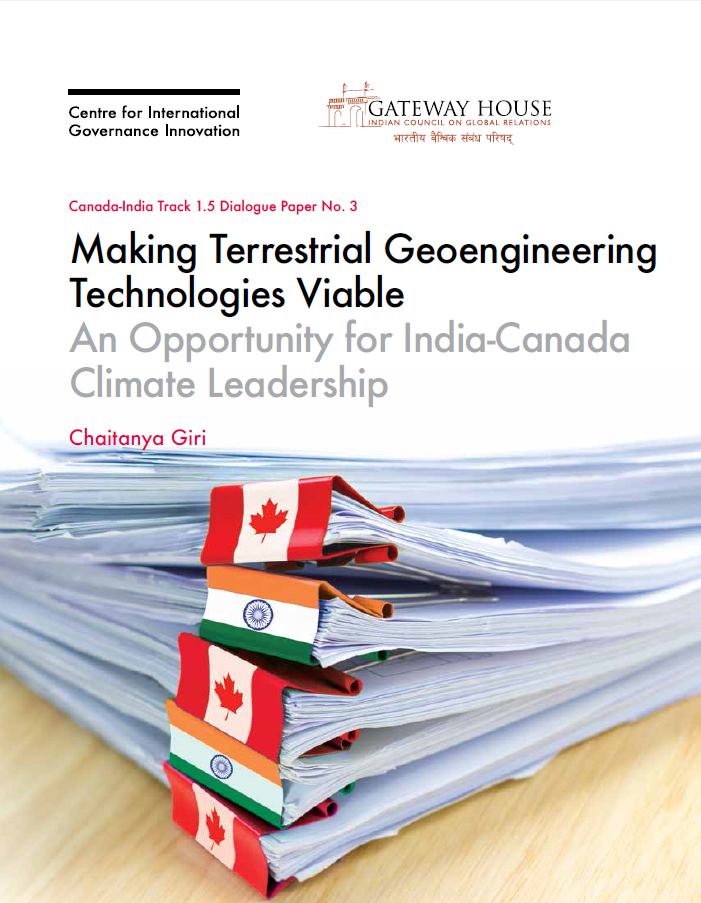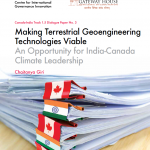The UN’s Paris Agreement is best known as the commitment by nations to reduce greenhouse gas emissions to slow the rise in global temperatures. But less-heralded provisions of the pact go further than that. In an acknowledgment that emissions-reduction alone will not resolve the unfolding climate crisis, a call has been made for the development of carbon sinks to remove gases already in the atmosphere. These less-heralded greenhouse gas removal technologies are essential to achieving the pact’s goal of keeping the global average surface temperature from rising more than the 1.5 degrees Celsius. These steps are also a key to ensuring that India and Canada meet their ambitious climate-action goals without suffering severe socio-economic and climatic harm.

This paper is part of the India-Canada Track 1.5 Dialogue. View the first, second and fourth part of this four-part paper series.
India-Canada Track 1.5 Dialogue on Innovation, Growth and Prosperity is a collaboration between Gateway House: Indian Council on Global Relations and the Centre for International Governance Innovation (CIGI).
The India-Canada Track 1.5 Dialogue works jointly on multilateral issues and identifies areas where improved cooperation could benefit both countries. To address these challenges, the papers produced under this partnership will help to develop policy recommendations to promote innovation and navigate shared governance issues that are integral to the continued growth of Canada-India bilateral relations.
You can download the PDF version of this paper here.
Chaitanya Giri is Fellow, Space and Ocean Studies, Gateway House.
This paper was exclusively written for Gateway House: Indian Council on Global Relations. You can read more exclusive content here.
The official press release of the paper can be viewed here.
For interview requests with the author, or for permission to republish, please contact outreach@gatewayhouse.in.
© Copyright 2019 Gateway House: Indian Council on Global Relations. All rights reserved. Any unauthorized copying or reproduction is strictly prohibited.


